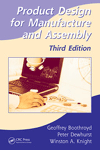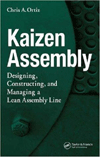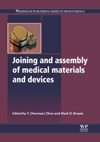Editorial: Hydrogen—Not Quite Yet
Writing recently in The Wall Street Journal Jeffrey Ball cites a full-page newspaper and magazine ad in which Toyota Motor Corp. says it's offering vehicles whose "only emission is water." The cars are "now on the road and ready to drive," the ad says. General Motors hopes to sell a million fuel cell powered cars a year—10 percent of total production—by the middle of the next decade, according to Larry Burns, GM's top technology executive.
Joerg Dittmer, industry analyst for Frost & Sullivan's Transportation Group, reminds us that fuel cells remain expensive and it isn't clear that the cost can be reduced to make them economically feasible for automotive use. He advocates burning hydrogen in internal combustion engines, which requires a far smaller leap in technology. Regardless of how it's used, the theory is that hydrogen is a perfectly clean and perfectly nonpolluting fuel. The green dream, Ball says, is to produce hydrogen from water by electrolysis, using electricity from renewable sources such as the sun or wind.
There is no question that the benefit to society from using hydrogen as a fuel justifies government action to promote its use. The benefits—reduced dependence on imported fuel and the virtual elimination of harmful exhaust gases—accrue whether hydrogen is burned in internal combustion engines or used in fuel cells. Likewise, the major obstacles to its widespread use are the same, regardless of how it's used. We lack a hydrogen refueling infrastructure, handling hydrogen is difficult at best, and the cost of producing and distributing hydrogen on a large scale is unknown.
The Baker Electric car was functionally successful; so was the Stanley Steamer. They were merely supplanted by the economic and convenience advantages of the internal combustion engine. Ford, GM and Chrysler all poured a great deal of money into turbine engine programs in the '70s, and GM invested heavily in developing a Wankel rotary engine during that same period. None has yet succeeded in offering the combination of economics and convenience that would make it the power plant of choice for cars and trucks.
Similarly, battery and fuel cell powered electric cars, and hybrid cars, are functionally successful today. However, The Wall Street Journal just reported that nearly all the major automakers have pulled the plug on their battery powered electric fleets; GM is the latest. Why? Because virtually nobody wanted them.
Hydrogen may fare better, but it isn't quite there yet.
Looking for a reprint of this article?
From high-res PDFs to custom plaques, order your copy today!






